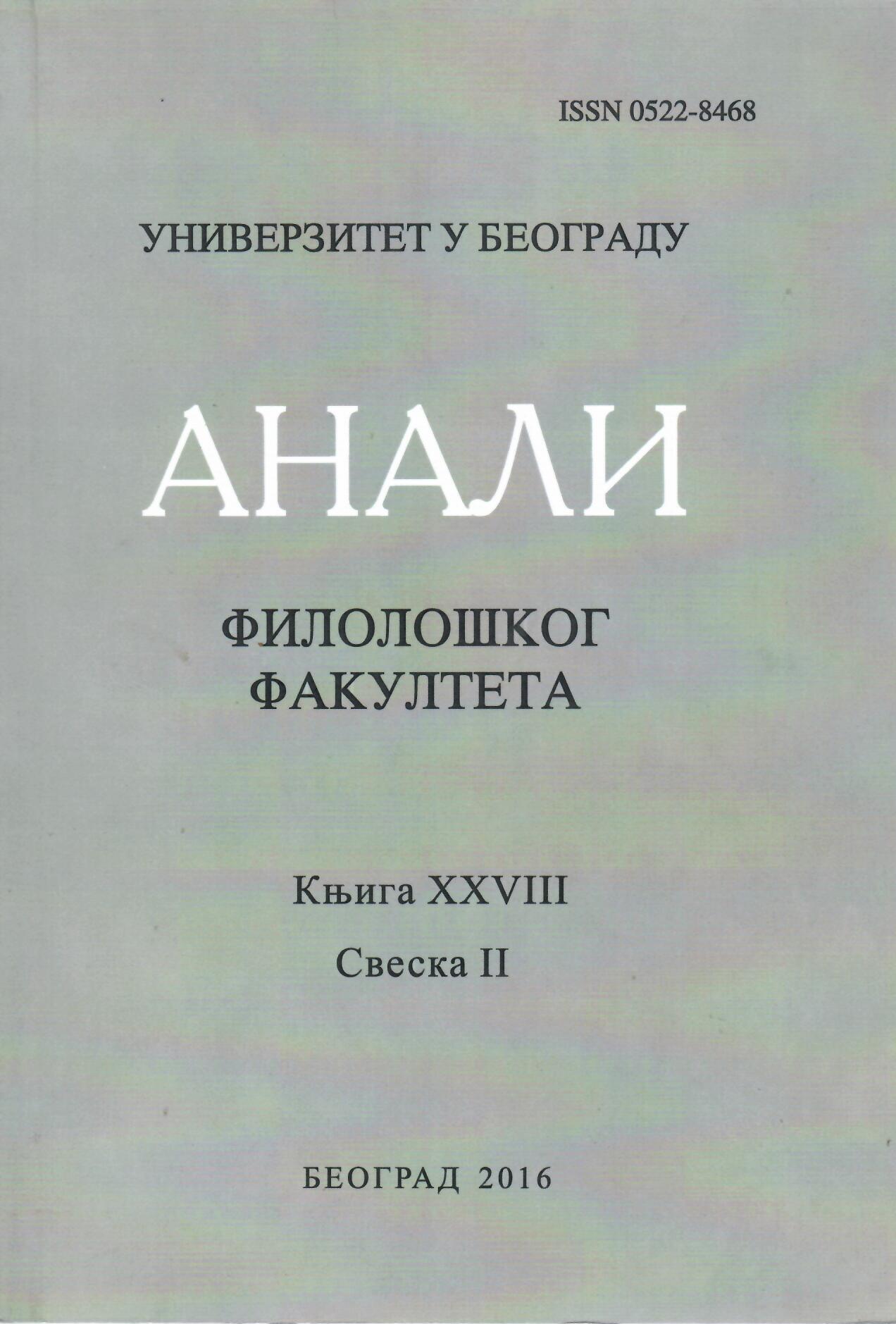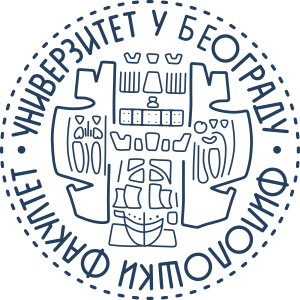Transfer pravila V2 u usvajanju germanskih jezika kao L2
DOI:
https://doi.org/10.18485/analiff.2016.28.2.11Keywords:
transfer, pravilo V2, germanski jezici, sintaksa, usvajanje L2, usvajanje L3Abstract
Pravilo V2 (pozicioniranje ličnog glagola na drugom mestu u rečenici) karakteristično je za većinu savremenih germanskih jezika i predstavlja jedan od najtipičnijih problema u usvajanju germanskih jezika kao L2. Cilj ovog rada je da osnovu različitih istraživanja usvajanja germanskih jezika kao L2 i L3 utvrdi u kojoj meri je pravilo V2 podložno transferu iz jednog jezičkog sistema u drugi i koji faktori utiču na taj transfer. Uzimajući u obzir istraživanja koja problemu usvajanja pravila V2 pristupaju iz različitih perspektiva (ponekad i direktno suprotstavljenih), može se uočiti da transfer ima bitnu ulogu u razvoju pravila V2, iako on ne isključuje uticaj i drugih razvojnih procesa. Transfer pravila V2 je dosledan (pozitivan i negativan) i prisutan je ne samo na sintaksičkom, već i pragmatičkom planu. Pored toga, transfer se ne vrši samo iz L1, već je moguć i iz nekog drugog L2, što znači da tipološka svojstva L1, L2 i eventualno L3 predstavljaju jedan od najvažnijih faktora u transferu pravila V2. Određena istraživanja ukazuju i na značaj drugih faktora, kao što su psihotipologija, L2 status, lingvistička i metalingvistička kompetencija i dr, što transfer pravila V2 u celini čini vrlo složenim procesom.
Downloads
Published
How to Cite
Issue
Section
License

This work is licensed under a Creative Commons Attribution-ShareAlike 4.0 International License.
Authors who publish with this journal agree to the following terms:
- Authors are confirming that they are the authors of the submitting article, which will be published (print and online) in the journal Anali filološkog fakulteta by the Faculty of Philology, University of Belgrade (Faculty of Philology, Studentski trg 3, 11000 Belgrade, Serbia). Author’s name will be evident in the printed article in the journal. All decisions regarding layout and distribution of the work are in hands of the publisher.
- Authors guarantee that the work is their own original creation and does not infringe any statutory or common-law copyright or any proprietary right of any third party. In case of claims by third parties, authors commit their self to defend the interests of the publisher, and shall cover any potential costs.
- Authors retain copyright and grant the journal right of first publication with the work simultaneously licensed under a Creative Commons Attribution-ShareAlike 4.0 International License that allows others to share the work with an acknowledgement of the work's authorship and initial publication in this journal.
- Authors are able to enter into separate, additional contractual arrangements for the non-exclusive distribution of the journal's published version of the work (e.g., post it to an institutional repository or publish it in a book), with an acknowledgement of its initial publication in this journal.
- Authors are permitted and encouraged to post their work online (e.g., in institutional repositories or on their website) prior to and during the submission process, as it can lead to productive exchanges, as well as earlier and greater citation of published work.





